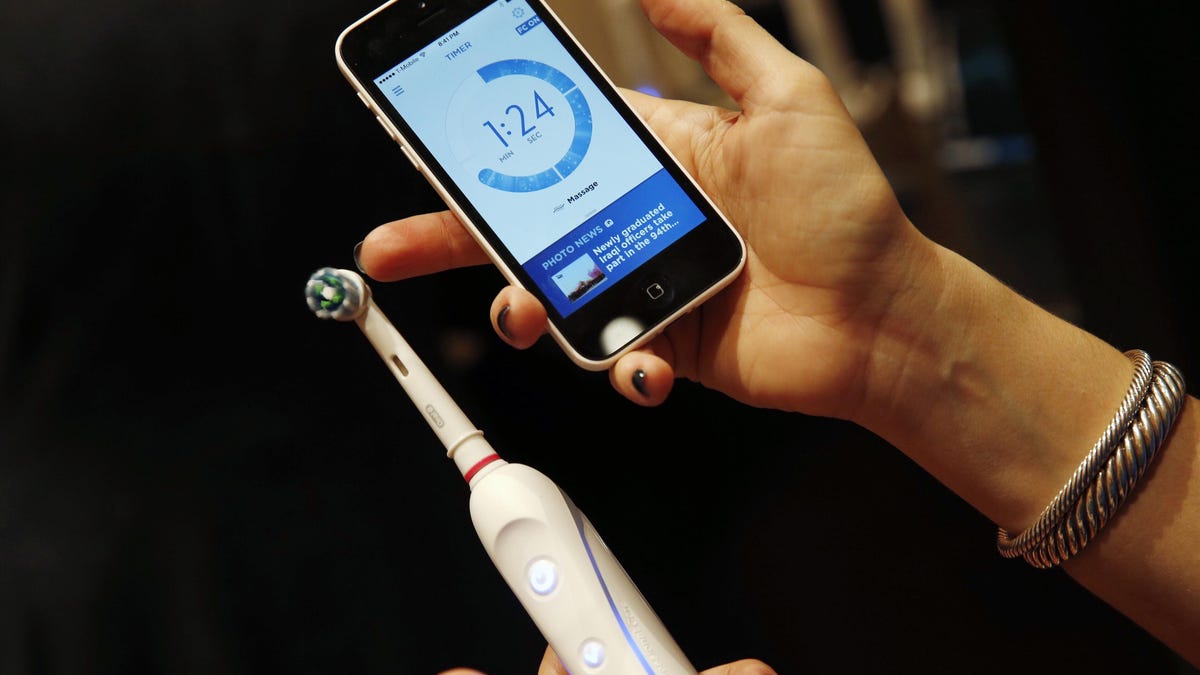- cross-posted to:
- [email protected]
- [email protected]
- cross-posted to:
- [email protected]
- [email protected]
Sounds like an article a toothbrush-botnet-hosted AI would generate.
Sounds like a comment the smart washing machines would make to distract us
Meanwhile, your smart thermostat is getting tactical updates from your sous vide circulator.
The union of wifi enabled butt plugs provide your current location and temperature.
Then the toothbrush, washing machine, thermostat, sous vide circulator, and butt plug start a podcast, “Plugged In”
Hmmm there wasn’t an episode last week, internet must have been down.

Kinda a paradoxical situation. Actually, disagreeing with her avoids the paradox. “People change their minds…” doesn’t mean “all people”. But if he agreed, he would have disproven the counter that “no people change their minds…” Disagreeing just says “while this isn’t an example of someone changing their mind, there do exist other examples”.
The side that Catherine picked is unwinnable on the internet.
It was hilarious watching them latch on to it though. If that doesn’t demonstrate that they’re geared for FUD nothing will.
And don’t forget, they’re not owned by the people. They’re not owned by hundreds of different organizations with different ideas. They’re owned by a handful of ultra rich fat (autocorrect but I’m leaving it) far right wing douchebags that do not have the best interests of anyone but themselves in mind ever.
When it was making the rounds of the Fediverse I spent some time hopping between the reposts adding a comment pointing out its falseness. On one of the threads I got a response that was basically “okay, so this particular story is false, but it still supports the narrative we’re arguing and so it might as well be true.”
Truthiness in a nutshell. Sigh.
Were they trying to argue that IoT could compromise privacy or were they claiming something silly? I recall seeing your posts (thanks) but I’m not sure if I remember the exchange or am thinking of another one.
It was on this thread on [email protected]. I’m guessing it’s a community dedicated to pooping on the Internet of Things, so when something like this comes along they really really want it to be true. I wasn’t paying attention to the communities when I was posting, though, just clicking through all the repost references and giving a cursory glance to see if someone had already pointed out the fakeitude.
Ah, now I see. Thanks.
“Thought experiment” = “Made this shit up”
I swear this keep getting reposted every single day for the last 4 days.
I’ve seen now 4 posts over those 4 days from 4 different sites and never heard about whatever stupid story this was originally referring to until these were posted.
Yes, when I see it getting upvoted every time I’m left wondering if there isn’t a bot issue on Lemmy because I also never heard of it and I would be baffled actual humans keep upvoting the same thing over and over
Different tech sites wrote stories about it, they just all are getting posted.
Quick IoT haters, spin this back around. This time make it that the toothbrushes all form into a man sized brush bot that people the brush off.
It’s not hate. It’s confusion. I have no earthly idea why I’d want my toothbrush to connect to anything.
I was playing around with one because I like to fuck around with weird stupid IoT things.
I don’t have it connected anymore, but I bought the Bluetooth motor for my Quip brush. It was initially interesting to document my brushing habits overtime and to highlight where I needed to focus attention.
But after a week or two of that, I got the insight I wanted and unpaired the BT motor.
If you’re super type-a, and like collecting “quantified-self” data about all the things, you’ll love it. If you’re me, you’ll say, “oh that was mildly interesting,” then never use that functionality again.
One application I’ve seen for this is recording your brushing patterns for your review and to recommend ways to improve your process. This is pretty useful right now considering dental hygiene literacy is criminally undertaught and uncommon even among adults.
IoT is great, it’s just that companies right now are abusing it and our lack of data protection laws to extract as much personal information as physically possible. The question shouldn’t be “why is my toothbrush connected to a network”, it should be “why does my toothbrush need to be connected to the Internet”.
Maybe the name is the problem. “Internet of Things” implies that “things” are connected to the “internet.”
I could definitely see the utility of a toothbrush with a three-axis accelerometer that tracks its orientation to make sure I’m getting all of the surfaces of my teeth. But you can do that with Bluetooth, not wifi, and I don’t know why the app needs access to my phone book and a monthly subscription.
If these things were built on open standards it might be better.
There are open IoT standards.
You “can” do these things in a lot of different ways, the unanswered question is what way is best. That’s not just a technical question, it also depends on how easy it is to deploy to the general public. If your toothbrush uses Bluetooth then you need to pair it with something that can speak to it, whereas if it can speak to the Internet then that broadens the ability for various systems to talk to it considerably. You can run a webserver they could visit from any browser, apps for phones, etc.
There’s no need for a toothbrush to have access to your phone book. But nobody’s saying it should. This whole situation of “hacked toothbrushes” isn’t real.
What the Fortinet headquarters in California is now calling a “translation problem” sounded completely different during the research: Swiss Fortinet representatives described the toothbrush case as a real DDoS at a meeting that discussed current threats…
Fortinet provided specific details: information about how long the attack took down a Swiss company’s website; an order of magnitude of how great the damage was. Fortinet did not want to reveal which company it was out of consideration for its customers.
The text was submitted to Fortinet for verification before publication. The statement that this was a real case that really happened was not objected to.
That makes me put a lot less trust in Fortinet. English is very widely spoken in Switzerland. I can’t really see it bring a translation issue.
Never heard of it.
Never in my life did I think I’d see an internet connected toothbrush. Why do we need such things…
This is the best summary I could come up with:
The answer is: No, but you’d be forgiven for having believed that was the case since a viral news story made the rounds earlier this week claiming it was so.
This story, which sounded just crazy enough to be true, was subsequently recycled by numerous English-speaking outlets, including Tom’s Hardware, ZDNet, and others.
A story from 404 Media cited skeptical security experts, who called into question the validity of the narrative.
According to Fortinet, the Swiss journalists who initially spread the story misinterpreted their researchers during an interview, which then caused U.S. outlets to uncritically pick up the false narrative and further circulate it.
In a statement shared with ZDNet, Fortinet clarified that the toothbrush incident had not actually happened, and was more of a thought experiment than anything:
Indeed, the Swiss newspaper at the center of the toothbrush drama has now come out and blamed Fortinet for falsely claiming that the story was real.
The original article contains 413 words, the summary contains 155 words. Saved 62%. I’m a bot and I’m open source!










